2 in 3 Canadians Believe a Grocery Code of Conduct is a Good Idea and 70% would Support Governments Imposing it on Retailers who Refuse to Abide by it.
On behalf of Food, Health, and Consumer Products of Canada, Abacus Data conducted nationwide survey of Canadians’ views towards competition in the grocery retail market and the Grocery Code of Conduct. The survey was conducted November 23 to 28, 2023 with a representative sample of 2,417 Canadian adults.
7 in 10 Canadians believe a highly concentrated grocery market leads to higher grocery prices.
When Canadians are told that most Canadians buy groceries from one of five companies and these companies sell 80% of groceries in Canada, 74% believe this market concentration leads to higher prices. 13% think it leads to lower prices while 5% think it has no impact on prices.
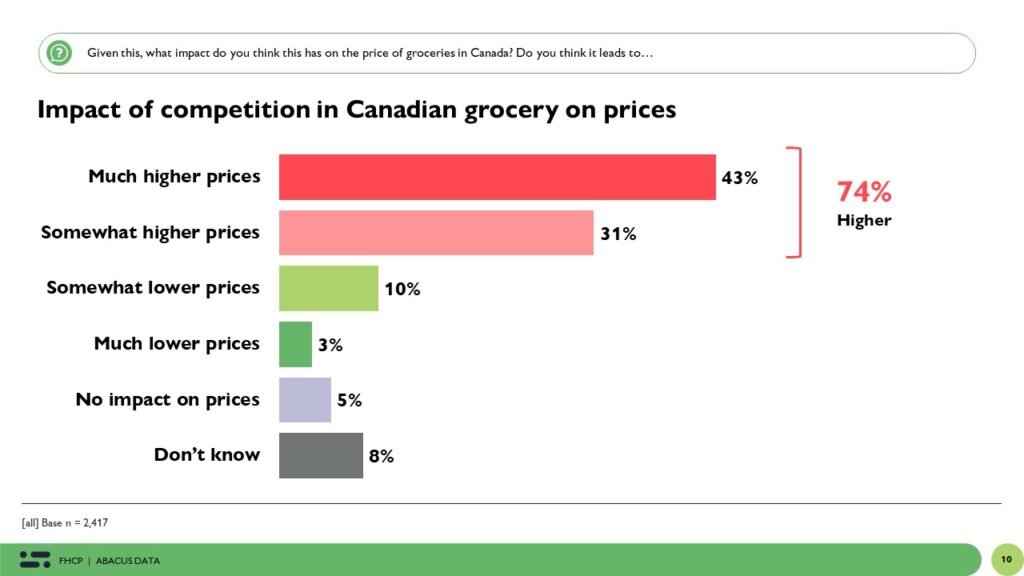
This perception is consistent across Canada, across demographic groups, and by supporters of all the major political parties in Canada.
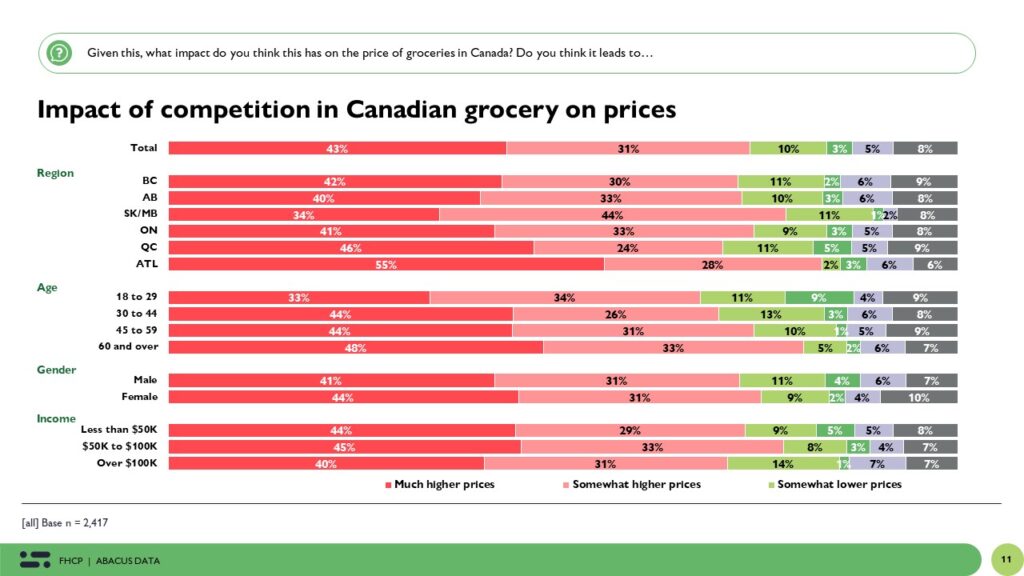
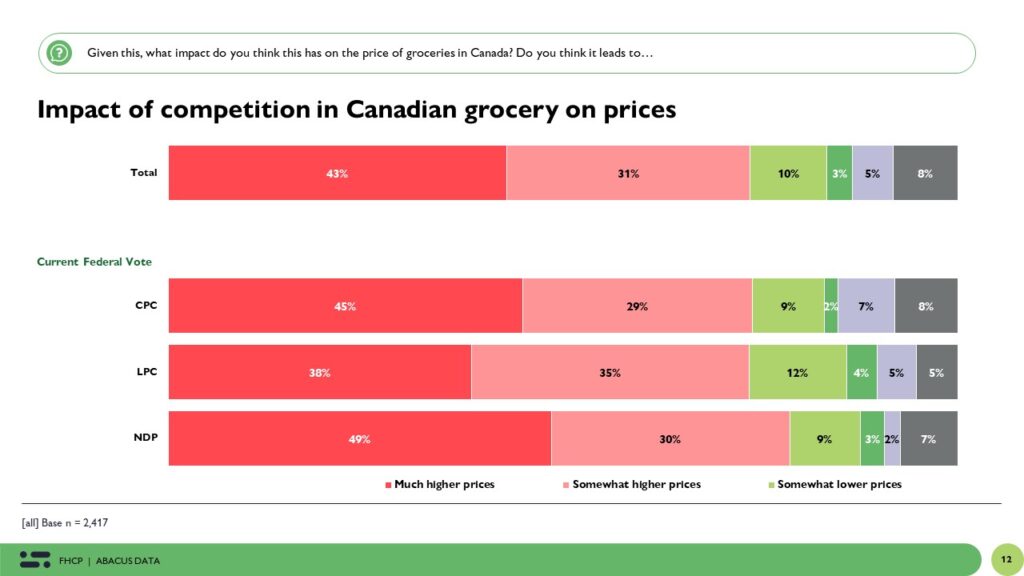
A Grocery Code of Conduct
Although most Canadians are unaware of efforts by industry to establish a Grocery Code of Conduct, most believe it is a good idea when they are informed about it.
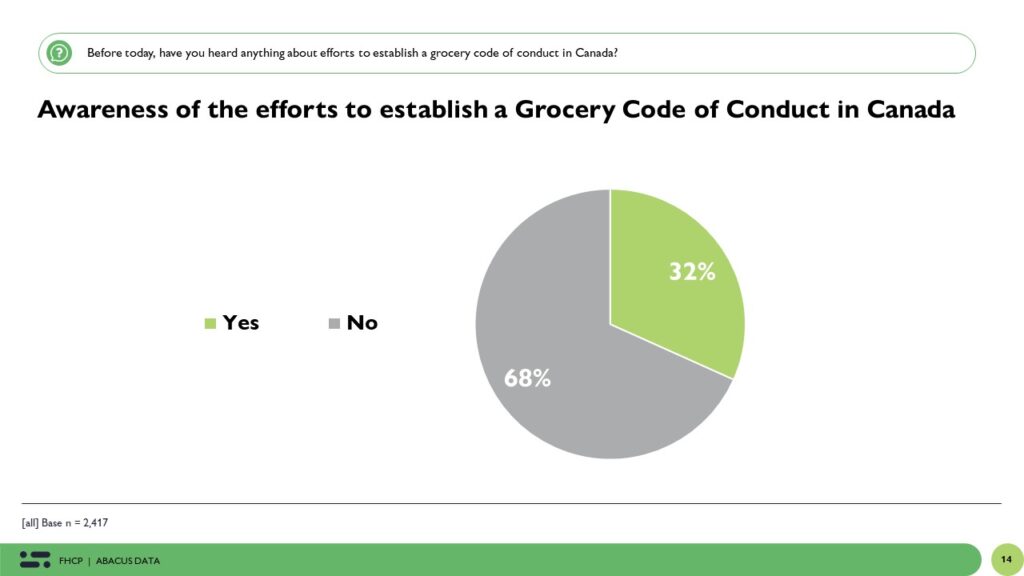
68% of Canadians believe a Grocery Code of Conduct is a good idea while only 7% consider it a bad idea. 1 in 4 say they don’t have a clear view.
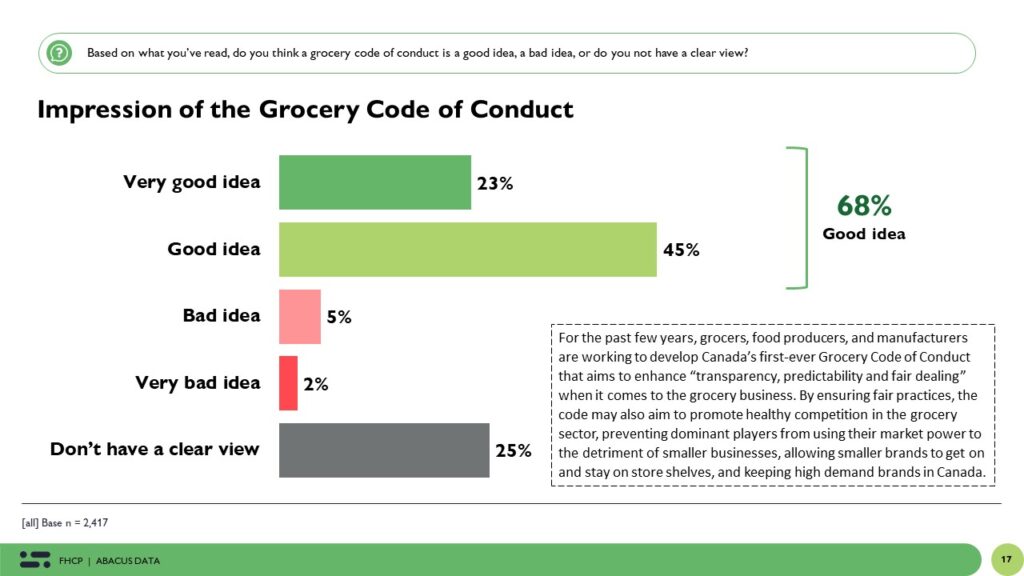
This view is shared by at least 60% of Canadians in every region of the country and by those from all age, gender, and household income groups. It’s also worth noting that a clear majority of Conservative Party, Liberal Party, and New Democratic Party supporters believe a Grocery Code of Conduct is a good idea and there is little resistance to the idea.
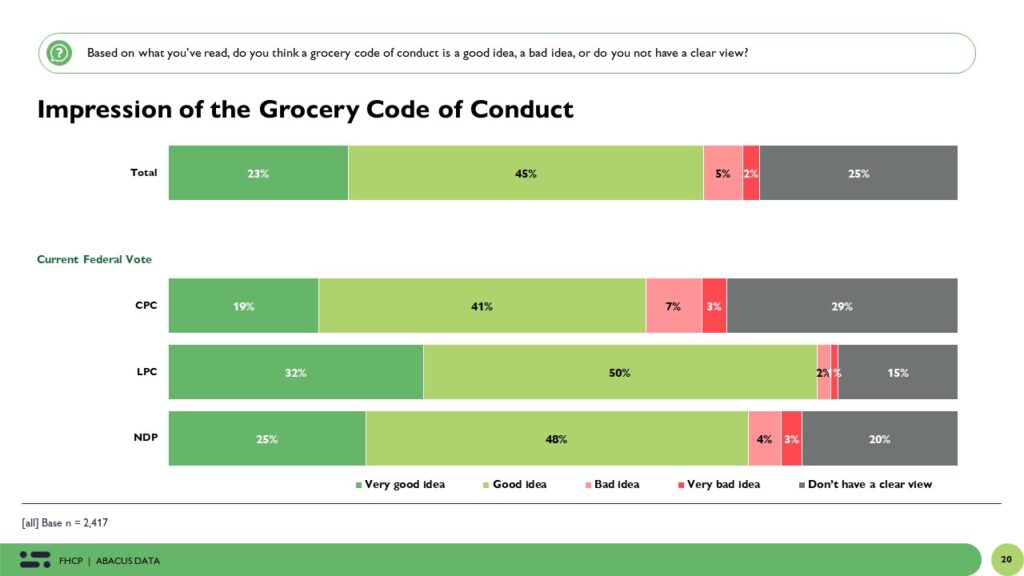
When told that not all major grocery retailers have agreed to abide by the code, 70% of Canadians would support the federal and provincial governments making it mandatory for all large grocery chains to follow the Grocery Code of Conduct.
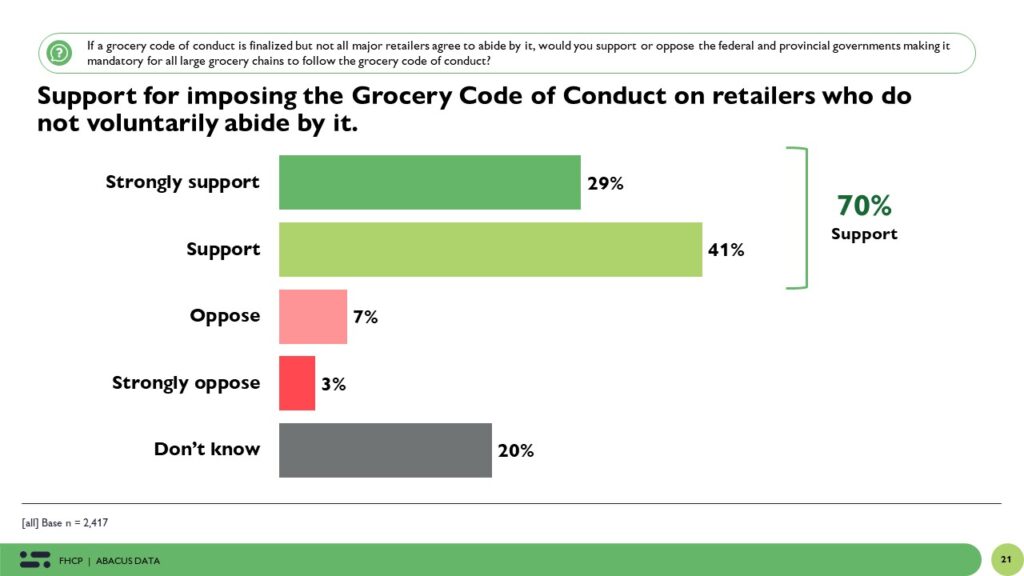
This view is shared by 62% of Conservative Party supporters, 82% of Liberal Party supporters, and 76% of NDP supporters.
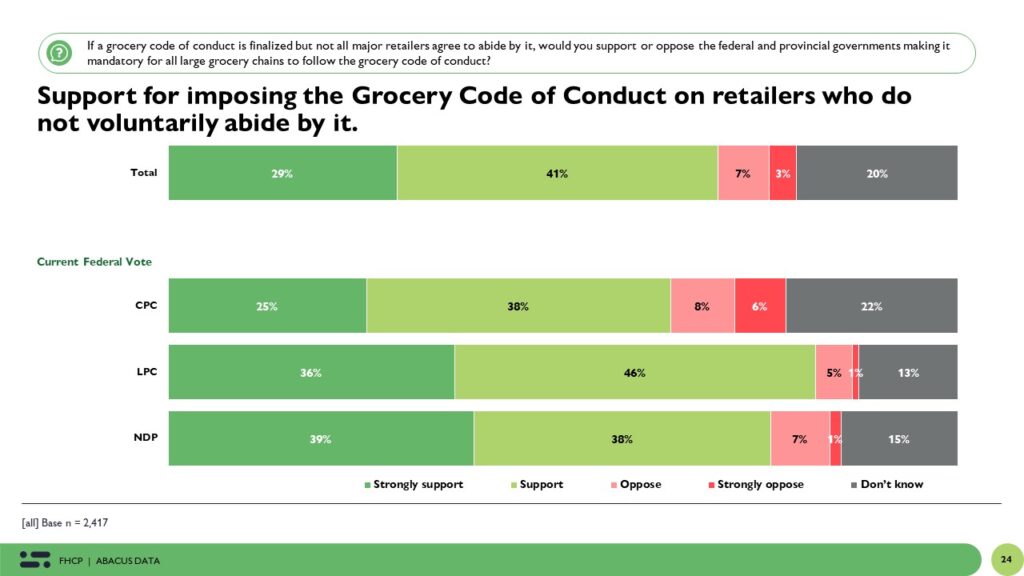
The Upshot
The cost of living has been the top issue of concern for Canadians for several years now. When we ask what is most likely keeping people up at night, rising prices, inflation, and the general cost of living is the most common response.
Given then, it’s no surprise that Canadians want to see costs come down and most believe the grocery retail market in Canada leads to higher prices. That’s why there is a cross-country, cross-partisan agreement that the Grocery Code of Conduct is a good idea and there’s widespread support for governments to impose it on retailers who refuse to abide by it.
Consumers want governments to protect their interests and at a time when the cost of living is the most important issue facing Canadians, action on the Grocery Code of Conduct will be met with widespread public support.
Background
The Grocery Code of Conduct in Canada is a set of industry guidelines and principles aimed at promoting fairness, transparency, and competition within the grocery supply chain. The voluntary code seeks to address issues such as unfair practices, arbitrary fees, and lack of clarity in business relationships between suppliers and retailers in the grocery sector. The code encourages open communication, equitable treatment, and timely payments for suppliers, ensuring that both small and large businesses have a level playing field. By fostering trust and accountability among stakeholders, the Grocery Code of Conduct aims to enhance the overall efficiency and competitiveness of Canada’s grocery industry, ultimately benefiting consumers through improved product availability and affordability.
For more than two years, a Grocery Code Steering Committee representing business associations and key stakeholders within the supply chain have been developing the provision and governance documents that collectively make up the code. Now complete, the code was recently submitted to government for review prior to the recruitment of a Chief Executive Officer to manage the development of a Grocery Adjudication Office in the Spring of 2024.
Methodology
The survey was conducted with 2,417 Canadian adults from November 23 to 28, 2023. A random sample of panelists were invited to complete the survey from a set of partner panels based on the Lucid exchange platform. These partners are typically double opt-in survey panels, blended to manage out potential skews in the data from a single source.
The margin of error for a comparable probability-based random sample of the same size is +/- 2.1%, 19 times out of 20.
The data were weighted according to census data to ensure that the sample matched Canada’s population according to age, gender, educational attainment, and region.
Abacus Data follows the CRIC Public Opinion Research Standards and Disclosure Requirements that can be found here: https://canadianresearchinsightscouncil.ca/standards/
This survey was paid for by Food, Health, and Consumer Products of Canada.